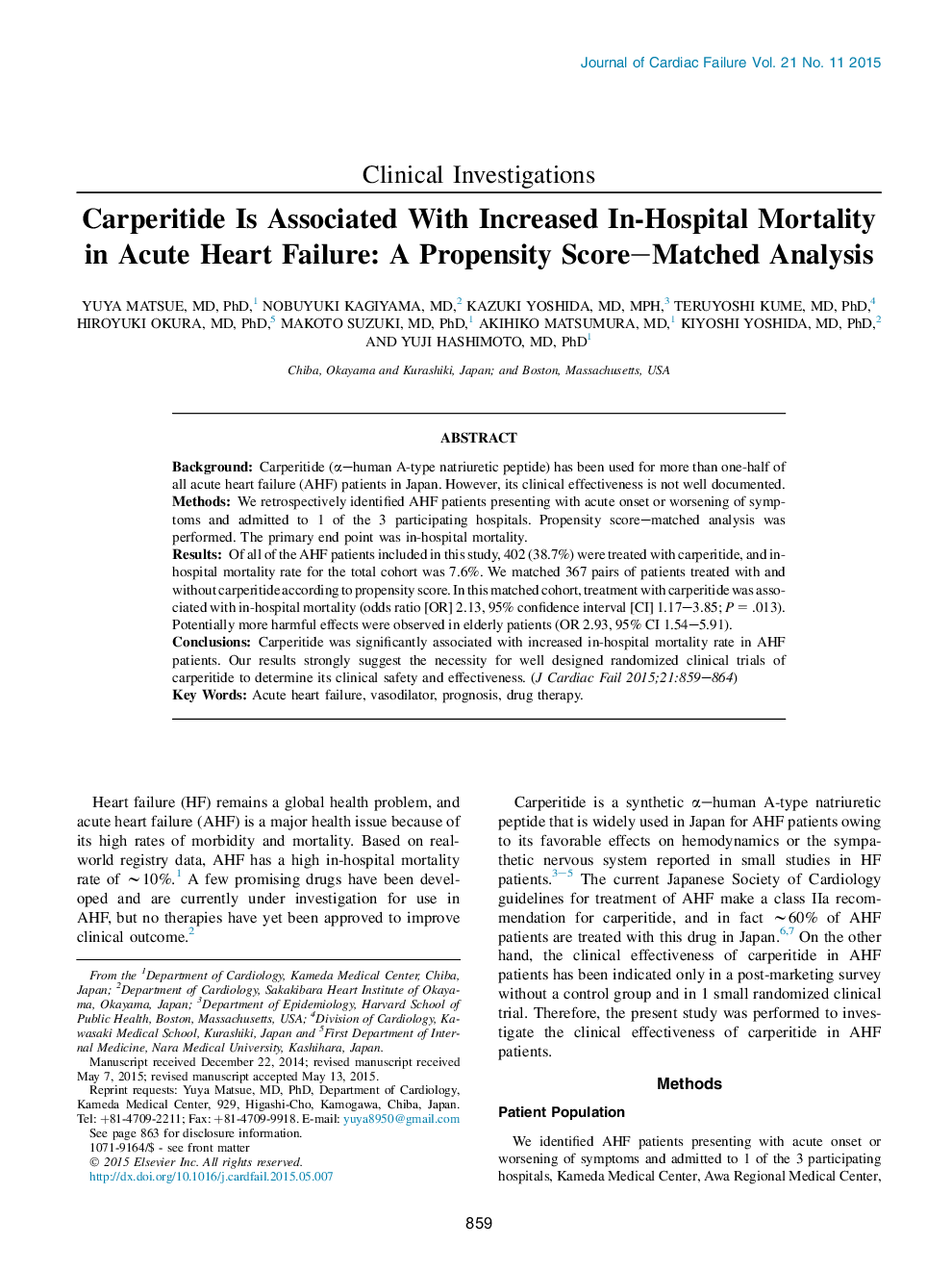| Article ID | Journal | Published Year | Pages | File Type |
|---|---|---|---|---|
| 2958943 | Journal of Cardiac Failure | 2015 | 6 Pages |
•We did propensity score–matching analysis for carperitide use in acute heart failure.•Carperitide use was associated with >2-fold higher in-hospital mortality.•In all subgroups except nonelderly (<75 y) the results were consistent.•Our results suggest the necessity of randomized clinical trials of carperitide.
BackgroundCarperitide (α–human A-type natriuretic peptide) has been used for more than one-half of all acute heart failure (AHF) patients in Japan. However, its clinical effectiveness is not well documented.MethodsWe retrospectively identified AHF patients presenting with acute onset or worsening of symptoms and admitted to 1 of the 3 participating hospitals. Propensity score–matched analysis was performed. The primary end point was in-hospital mortality.ResultsOf all of the AHF patients included in this study, 402 (38.7%) were treated with carperitide, and in-hospital mortality rate for the total cohort was 7.6%. We matched 367 pairs of patients treated with and without carperitide according to propensity score. In this matched cohort, treatment with carperitide was associated with in-hospital mortality (odds ratio [OR] 2.13, 95% confidence interval [CI] 1.17–3.85; P = .013). Potentially more harmful effects were observed in elderly patients (OR 2.93, 95% CI 1.54–5.91).ConclusionsCarperitide was significantly associated with increased in-hospital mortality rate in AHF patients. Our results strongly suggest the necessity for well designed randomized clinical trials of carperitide to determine its clinical safety and effectiveness.
